Every Ivan Reitman-Directed Movie Ranked Worst To Best
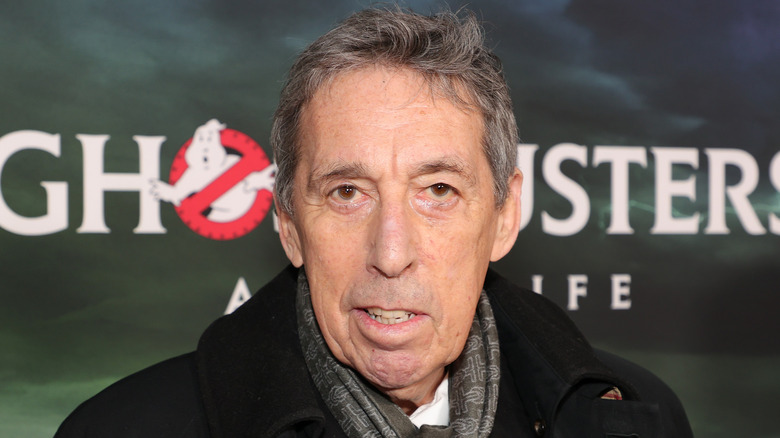
Ivan Reitman died February 12, 2022, at 75 years old, leaving a half-century legacy of filmmaking that transformed cinema.
Reitman logged close to 70 movie and TV credits as a producer, not counting nearly half a dozen in pre-production when he died, and 17 feature films as a director, not counting four short films, a music video, and an unsold pilot that aired as a TV movie.
Reitman directed some of cinema's most classic comedies, making "Saturday Night Live" alum Bill Murray the comedic lead everyone believed he could be, and musclebound action hero Arnold Schwarzenegger the comedic lead no one believed he could be. Reitman's oeuvre also explored sci-fi, horror, legal thrillers, sports dramas, romance, and even politics.
Reitman's first short film, 1968's "Orientation," is available online, but his first feature film (and the big-screen debut of "SCTV" alums Andrea Martin and Eugene Levy), 1971's "Foxy Lady," appears unavailable anywhere.
Cannibal Girls
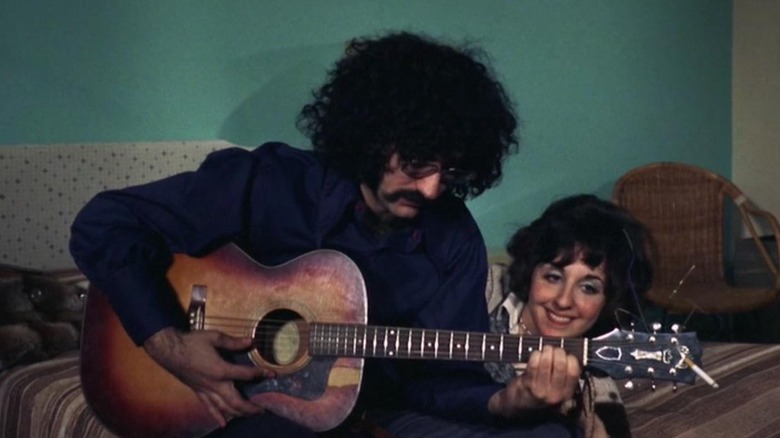
This 1973 independent grindhouse film actually predates "The Texas Chain Saw Massacre" by a year, but unfortunately, its low budget and less-than-ambitious story arc can't help but mute Reitman's self-spoofing treatment of the material, making it seem closer to a derivative retread of this grimy subgenre than a prescient satire of the luridly gory cinematic excesses to come.
Reitman earns points for bringing back Andrea Martin and Eugene Levy (the latter resembling a bohemian Gene Shalit) for an unconventional take on the stereotypical young lovers in peril. Reitman manages to keep things interesting by having their already fractious relationship take a couple of genuinely novel twists near the end. Indeed, Levy and Martin's work here won them the Best Actor and Best Actress awards at 1973's Sitges Film Festival. Otherwise, the hardest-working performers onscreen are the eponymous "Cannibal Girls" and bearded weirdo Ronald Ulrich as their surreal cult leader, the Reverend Alex St. John.
Father's Day
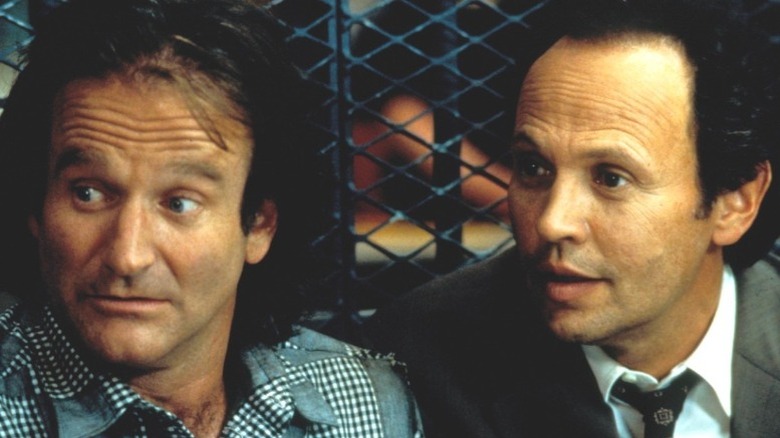
When a 17-year-old boy (Charlie Hofheimer) runs away from home and his father (Bruce Greenwood) seems initially unconcerned, his mother (Nastassja Kinski) separately tells two ex-boyfriends (Billy Crystal and Robin Williams) they're each the boy's real father, so they'll search for him instead.
Even at its best, this 1997 odd-couple road-trip pairing of strait-laced Crystal and free-spirited Williams leans heavily on the weary conceit of none of the characters having a simple, direct, complete conversation with each other. At its worst, it introduces Robin Williams' character by showing him setting fire to his writing and sticking the barrel of a gun in his mouth to commit suicide, treating his despair as hilarious.
"Father's Day" plays like it was made by someone who couldn't decide whether they hated Williams, Crystal, or Reitman more. While it's technically better-made than "Cannibal Girls," this family-unfriendly comedy should not be watched by anyone ever.
My Super Ex-Girlfriend
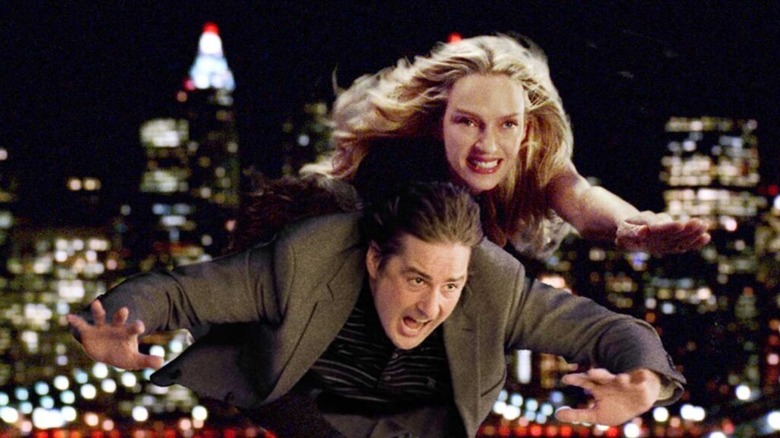
Welcome to superhero movies before 2008's "Iron Man."
Seeing the more intimate side of an ordinary human hooking up with a superheroine is actually amusing, in the style of an extended "Saturday Night Live" skit. And Uma Thurman's dual role as mousy Pamela Isley and seductive Poison Ivy in Joel Schumacher's 1997' misfire "Batman & Robin" prepared her to play the assertive G-Girl and her neurotic secret identity, Jenny Johnson, in 2006's "My Super Ex-Girlfriend."
Unfortunately, there's no such thing as a restrained Uma Thurman performance, and that makes her character's emotional outbursts frightening rather than funny — even when she's not "humorously" abusing her superpowers against her ex-boyfriend, in ways everyone would recognize as domestic violence if this couple's genders were flipped. This film compounds its misandry by reducing Wanda Sykes to a mean boss caricature who constantly suspects that an innocent man is committing sexual harassment.
Evolution
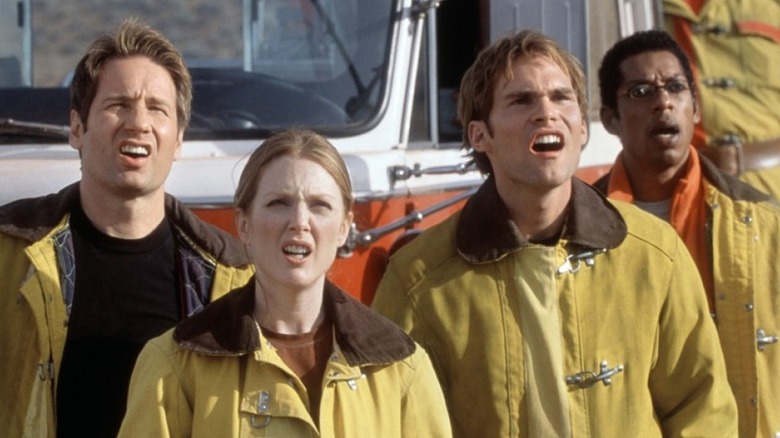
This 2001 sci-fi comedy is a seemingly can't-miss combo of winning elements that somehow misses broadly. Yet, not even the most tone-deaf misfires of its attempted humor (including the lower-intestinal indignities visited upon Orlando Jones' character) can detract from how richly realized its diverse spectrum of imaginatively-conceived alien creatures is.
When a meteorite carrying alien lifeforms crash-lands in Arizona, a pair of unambitious community college professors, played by Jones and David Duchovny, realize they've made a revolutionary scientific discovery, But soon, their findings are hijacked by the U.S. Army and brilliant-but-clumsy Dr. Allison Reed (Julianne Moore) of the CDC.
In "Evolution," Ivan Reitman aims to recreate the "Ghostbusters" dynamic by headlining its four-man band with the actors who played FBI agents Fox Mulder and Clarice Starling, who are admittedly cute together.
With a better-edited script, "Evolution" might have sustained a franchise beyond its 2001 animated series and video game tie-ins.
Six Days, Seven Nights
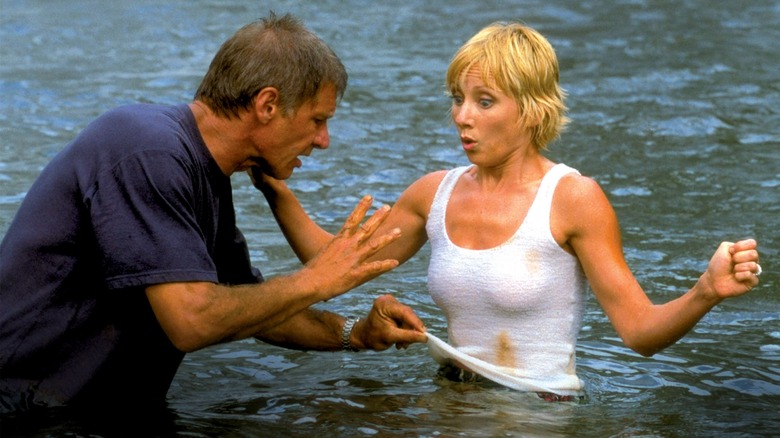
When New York fashion magazine editor Robin Monroe's (Anne Heche) South Pacific island vacation is interrupted by her boss (Allison Janney), calling her to supervise a photoshoot in nearby Tahiti, she pays crusty old charter pilot Quinn Harris (Harrison Ford) to fly her there. Unfortunately, a sudden lightning strike forces his already rickety plane to crash-land on a deserted island.
The ensuing "Six Days, Seven Nights" see Heche's pampered big-city entitlement clash with Ford's ruggedly spartan survival instincts, but what's refreshing is how neither character is rendered gratuitously inept or offensive in dealing with their shared dilemma or each other — even as they encounter a trio of pirates played by the always watchable Danny Trejo, Cliff Curtis, and Temuera Morrison.
Sadly, Ford and Heche don't possess the fiery chemistry of Bruce Willis and Cybill Shepherd in "Moonlighting" nor do their adventures convey any genuine sense of peril.
No Strings Attached
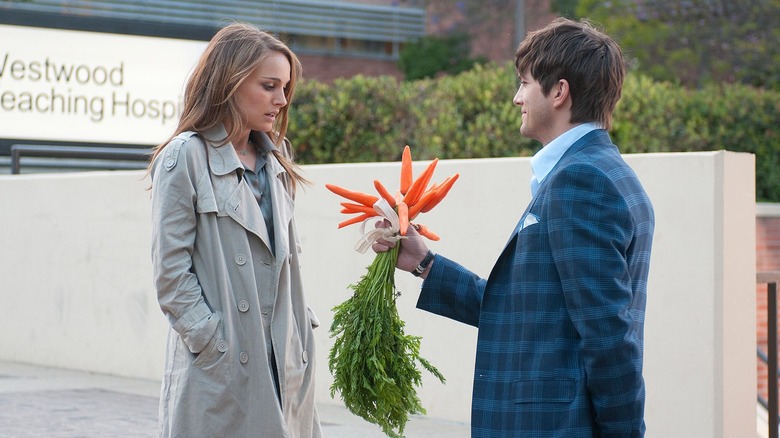
Promoted as a lighthearted comedy, 2011's "No Strings Attached" is a surprisingly sensitive exploration of how complicated and intimidating emotional intimacy has become. Despite having been a baby boomer, Ivan Reitman empathetically depicts the younger generation as having been failed by their generally well-meaning but profoundly myopic parents.
Rather than portraying Ashton Kutcher and Natalie Portman's non-committal relationship as proof of their immaturity, Reitman shows how it's a symptom of their being forced to grow up too fast. Having grown up unable to rely on their adult guardians, they are reluctant to develop mature, committed relationships.
And rather than relying on the tired trope of the overgrown postadolescent manchild who realizes he needs to take responsibility for his actions, "No Strings Attached" instead casts Portman's character as the one who finally finds the courage to stop putting up barriers between herself and those who care about her.
Junior
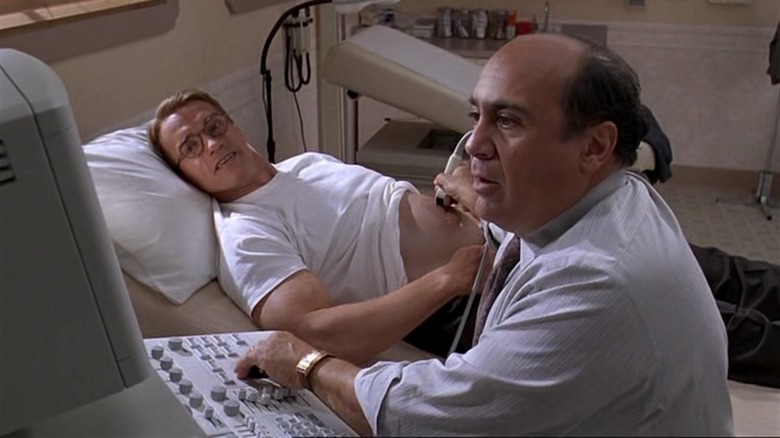
With "Junior," Reitman knew he could count on the capable talents of Pamela Reed, Frank Langella, Danny DeVito, and especially Arnold Schwarzenegger to help him sell the admittedly absurd premise of the world's first cisgender male pregnancy.
Unexpectedly, the weak link is Shakespearean actress Emma Thompson, who summons zero romantic spark with Schwarzenegger, and is given little to define her character besides social awkwardness, righteous indignation, and gratuitous pratfalls.
"Junior's" premise is hardly novel, even by 1994 standards. Much of its humor is reminiscent of old Bill Cosby comedy routines that were tired even before the male pregnancy episode of "The Cosby Show" aired in 1989.
Schwarzenegger's third-act disguise as a pregnant woman likewise inspires cringe by leaning on the hoary "humor" of Arnold posing as an Eastern European female athlete transformed by steroids. And yet, however obvious and predictable it might be, it's still endearing to witness such a cartoonishly extreme avatar of masculinity getting in touch with his feminine side, especially as characters who don't even suspect his pregnancy describe him as "radiant," in spite of his disgust with his own body.
Legal Eagles
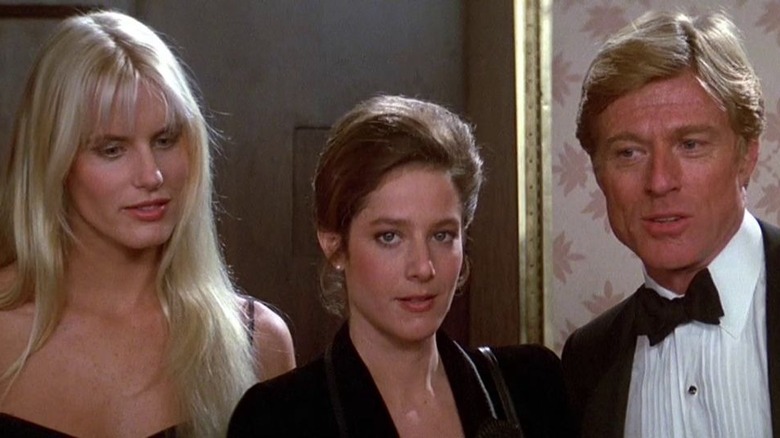
In "Legal Eagles," Robert Redford plays Manhattan Assistant District Attorney Tom Logan, the divorced dad to an inquisitive, insightful teenage daughter. An insomniac, Logan tap dances to pass the long nights. Principled defense attorney Laura Kelly (Debra Winger) sits in on court cases the way avid baseball fans attend spring training sessions, and she shares Redford's workaholic sleeplessness.
The emotionally damaged Chelsea Deardon (Daryl Hannah) was 8-years-old when she saw her father die in the same mysterious fire that supposedly consumed his paintings. She goes to Logan and Kelly because she believes one of those paintings was actually swiped by an art gallery curator (Terence Stamp) who did business with her father.
Our "Legal Eagles" typically face off from opposite sides of the courtroom, but they team up on this case due to their mutual commitment to the law and the truth.
Redford and Winger's partnership works so well because each is afforded their own charming personality quirks and flourishes of cleverness, while Hannah serves as a mercurial force of nature with her succession of secrets and her frightening pyrotechnic performance art — that I'm guessing was avant-garde for 1986.
Dave
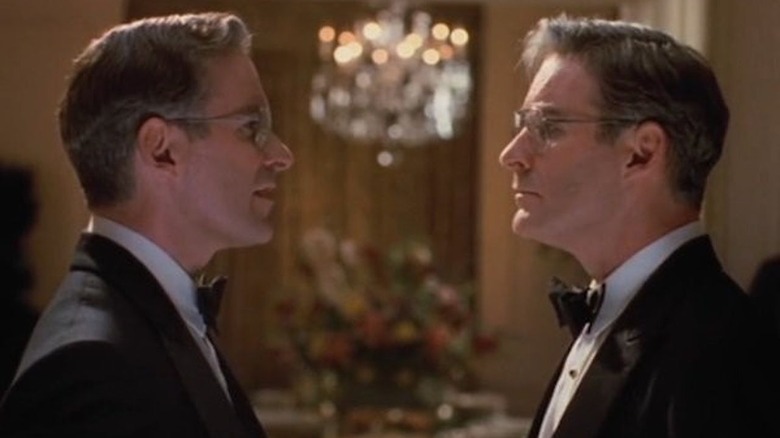
Ivan Reitman deftly executed this 1993 spiritual successor to 1939's "Mr. Smith Goes to Washington" by recruiting every real-life political pundit and elected official he could (from both sides of the aisle) for cameos to lend his Capra-esque fable a bipartisan, up-to-the-minute verisimilitude.
More importantly, he cast earnest, understated actors like Ving Rhames, Charles Grodin, Sigourney Weaver, and Kevin Kline to serve as core pillars of strength for a story that relies on multiple unlikely contrivances.
Kline plays both fictional U.S. President Bill Mitchell, a patrician whose callous insincerity has alienated his altruistic first lady, and his civilian lookalike Dave Kovic, a tireless Good Samaritan who runs a Georgetown temp agency because he believes everyone deserves a job.
Dave is hired to stand in for Mitchell during one of his dalliances, but when the president suffers a stroke, his Machiavellian chief-of-staff (a glowering Frank Langella) extends Dave's contract — only for the stand-in president to use his position to try and improve his fellow Americans' lives.
Draft Day
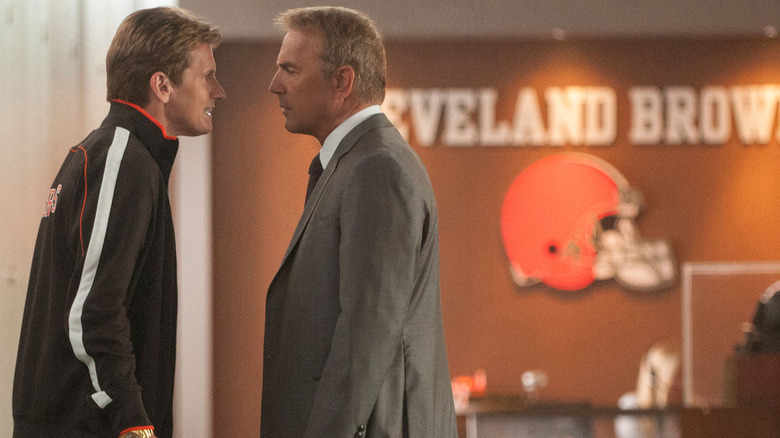
Regardless of middling reviews and box office returns, Ivan Reitman's final film ranked among his most uncharacteristic and well-made movies.
In "Draft Day," Reitman weaponizes Kevin Costner's cantankerousness by casting him as the Cleveland Browns' embattled general manager in the hours counting down to the NFL's annual draft. Costner squabbles with the team's publicity-minded owner (Frank Langella in his third outing with Reitman) and its possessive head coach (Denis Leary) over his draft picks as well as with his mother (Ellen Burstyn), the widow of the team's former head coach, whom Costner had fired in spite of the man also being his father.
Even for those who are not fans of professional football, seeing Costner jockey for the best deals as he wheedles with other teams over their respective draft picks is fascinating to behold. Their conference calls manage to be as compelling and fast-paced as the action that any number of sports films show happening on the field.
Former Superman Tom Welling appears as the Browns' previous-year starting quarterback who's upset over the possibility of being displaced in the coming season. The late Chadwick Boseman demonstrates his range as a promising up-and-coming prospect.
Kindergarten Cop
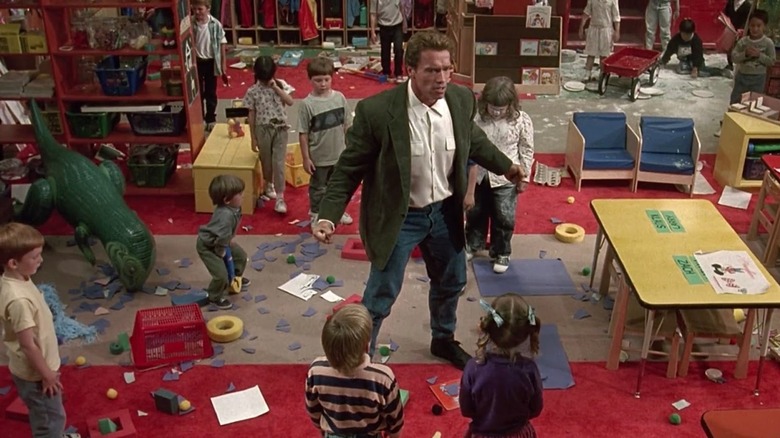
"Kindergarten Cop" proved the comedic chops Arnold Schwarzenegger demonstrated in "Twins" hadn't been a fluke. Reitman opens the film by placing Schwarzenegger in familiar territory as a shades-wearing, stubble-faced, inner-city cop-on-the-edge, not unlike Sylvester Stallone's character in 1986's "Cobra." Soon, however, Schwarzenegger is transplanted to the pastoral suburbs of Astoria, Oregon, to go undercover as a kindergarten teacher.
There's technically a plot involving Schwarzenegger using the school to locate a Los Angeles drug lord's ex-wife and son, but the real draw is seeing the big, tough Terminator terrorized by a class full of unruly little kids.
While Reitman didn't bring back Danny DeVito for Schwarzenegger's second comedic outing, the director struck gold by pairing Arnold with the sedately gifted Pamela Reed who plays the teacher-turned-cop who was originally slated to go undercover before she caught a bad stomach bug.
This film also benefits from the diminutive Linda Hunt as Arnold's initially disapproving principal. She winds up being won over by his unconventional methods of teaching the kids fitness and discipline and also gets a vicarious kick out of seeing Schwarzenegger treat a physically abusive father to a taste of his own medicine.
Twins
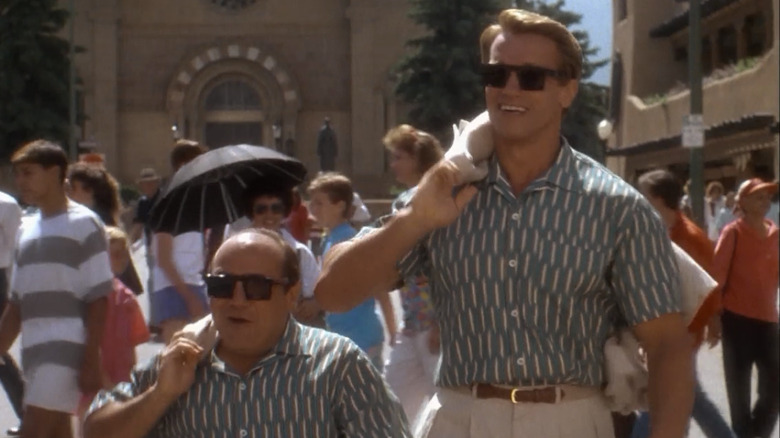
As Arnold Schwarzenegger told an interviewer in 2016, he understood it was considered a big risk to cast him as a comedic lead, so he, Danny DeVito, and Ivan Reitman all agreed to forego their salaries for 1988's "Twins" in exchange for shares of the film's profits. All three agreed it was the best decision they ever made.
Casting a photogenic Austrian bodybuilder to play the result of a government-run scientific experiment to produce "a physically, mentally and spiritually advanced human being" could have come across as endorsing eugenics — especially when pairing a physical specimen like Schwarzenegger with the squat, balding DeVito as his long-lost "bad" twin brother.
As innate as the criminal compulsions of DeVito's hostile, cynical character seem, Schwarzenegger's character nonetheless defends his estranged brother by pointing out the profound impacts of growing up in completely different environments. Schwarzenegger's character, the supposedly superior brother, was raised with levels of love and education that his inferior twin never received.
DeVito's savagely sarcastic wit contrasts hilariously with Schwarzenegger's politely idealistic naivete since the latter was literally raised in a tropical island paradise, isolated from the rest of human civilization.
Ghostbusters II
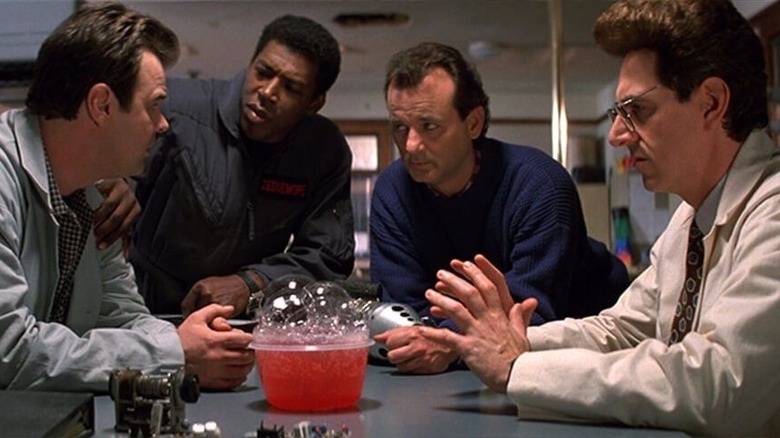
It's not as good as the original, but "Ghostbusters II" is not as bad as fans who had watched "The Real Ghostbusters" animated series since 1986 initially insisted. Seeing Jason Reitman's superb "Ghostbusters: Afterlife" puts Ivan Reitman's 1989 sequel into context as another installment in the series.
The Ghostbusters' second cinematic outing was accused of selling out the cynicism of the first film, but part two opens with the team already out of business after being sued for damages incurred in saving the city. The film's villain, Vigo the Carpathian, amasses his apocalyptic powers by feeding off the innately negative energy and emotions of New Yorkers. As a returning Mayor Lenny proclaims, "Being miserable, and treating other people like dirt, is every New Yorker's God-given right."
This film delivers a walking Statue of Liberty and a ghostly Titanic pulling into port, but more importantly, it was the last time the complete core cast got back together.
Meatballs
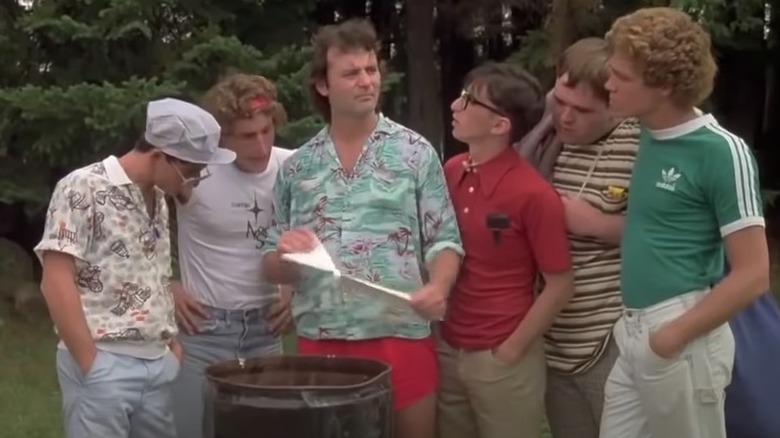
"Meatballs" remains the apex of the summer camp subgenre of crude teen cinema (which is likely as extinct as the ski-lopes-race-and-party subgenre. "It's Always Sunny in Philadelphia" notwithstanding) with hormonally-overloaded campers and counselors-in-training (CITs) pulling pranks and scheming to make variously defined "scores." Be warned that anti-gay slurs are repeatedly used throughout the film, and one nerdy CIT is nicknamed "Spaz," but this film's bawdy antics nonetheless acknowledge that young women have desires and maturational milestones of their own.
The heart of the film's story centers on Murray mentoring a quiet, sensitive young camper, played affectingly by Chris Makepeace, who's emotionally distant from his family and peers.
Murray filmed "Meatballs" around the time he turned 28, and his character is existentially terrified that he now qualifies as a mature and responsible adult by default. As a kid, I wished for a mentor like Murray. As an adult, I hope I've been Bill Murray for other weirdo kids.
Stripes
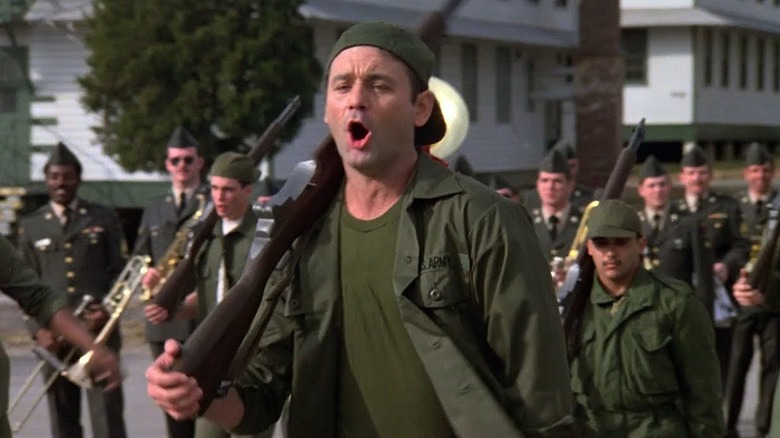
As a Canadian comic filmmaker, Ivan Reitman was understandably unconcerned with accurately depicting U.S. Army basic training in 1981's "Stripes." Whether you enlisted in the Army like Bill Murray and Harold Ramis' characters or you joined the Navy to see the world (like yours truly), many veterans would agree this film captures the atmosphere and camaraderie (and occasional lack thereof) of boot camp and of the service overall.
In any crop of recruits, you're bound to find:
• The dimbulb bumpkin (John Diehl)
• The twitchy headcase with the hair-trigger temper (Conrad Dunn)
• The ridiculously optimistic self-improvement seeker (John Candy)
• The snarky, misplaced pacifist who's nonetheless loyal to his brothers-in-arms (Ramis)
• And the slacker with an attitude who signed up to escape the mess he made of his civilian life (Murray)
As anarchic as this film is, (John Belushi described it as "Animal House joins the Army"), it hammers home the message that your stern drill instructor (Warren Oates who could scowl even while smiling was flawlessly cast as Sgt. Hulka) is trying to help save your life and make you a better person. "Stripes" encapsulates all this, plus one heavily armed recreational vehicle.
Ghostbusters
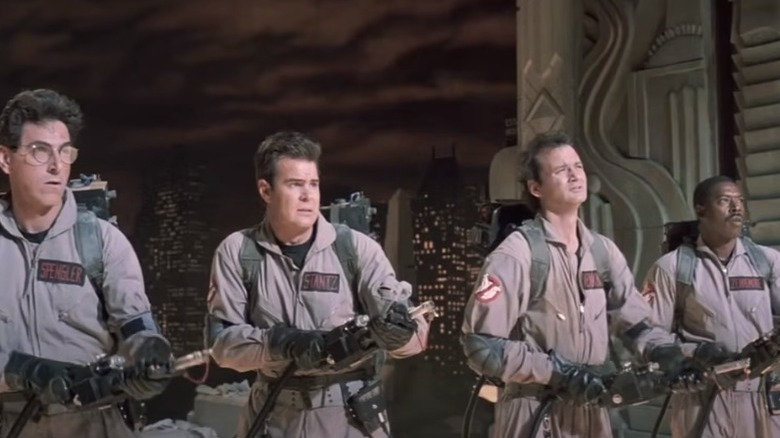
It's not even close. Coming in at No. 1 is "Ghostbusters."
Filmmakers have spent decades chasing the dragon of trying to craft heroic action-adventure epics that also succeed as comedies without undermining the credibility of their sci-fi and fantasy elements. Other 1980s films such as "The Ice Pirates," "Big Trouble in Little China" and "The Golden Child" all attempted this feat with varying degrees of creative and commercial success. However, Ivan Reitman cracked the code by wrestling Dan Aykroyd's beast of a screenplay into a beloved classic.
Thanks to the film's overwhelming and immediate impact on kid culture, the term "Ghostbuster" joined "Jedi Knight" as an entirely new answer to the question, "What do you want to be when you grow up?" "Ghostbusters" gave genre cinema the most memorable, appealing, and dynamic quartet this side of Marvel Comics' "Fantastic Four" and Kevin Eastman and Peter Laird's "Teenage Mutant Ninja Turtles" (the latter of which also made its debut in 1984).
The fictional reality the Ghostbusters inhabit feels lived-in and absurdly authentic with a New York City that is as filthy and disgruntled as anything we've seen in a Martin Scorsese movie. If you love the Marvel Cinematic Universe, tell Disney to thank Reitman for furnishing the MCU's template.
Read this next: The 14 Best Bill Murray Movies Ranked
The post Every Ivan Reitman-Directed Movie Ranked Worst to Best appeared first on /Film.
